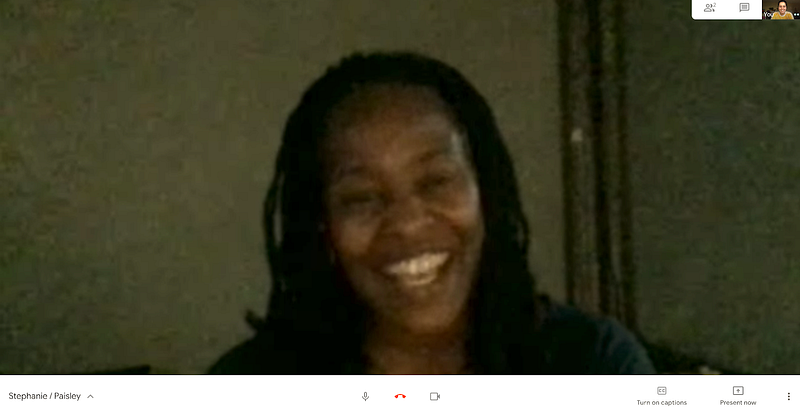An interview with Stephanie Dinkins, Brooklyn, New York
As a follow-up to “Impact of Covid-19 on Immersive Creatives,” I’ve continued to talk to artists about their pandemic experiences.
See other discussions with Nancy Lee, Diego Galfassi, and Raqi Syed & Areito Echevarria,.
 Stephanie Dinkins
Stephanie DinkinsStephanie Dinkins is a transmedia artist whose work often digs right into the heart of artificial intelligence (AI) as it intersects with race, gender, aging, and our future histories. She is a professor in the Department of Art at Stony Brook University. Dinkins has received Fellowships and Residencies from organizations such as A Blade of Grass, the Laundromat Project, EYEBEAM, Soros Foundation, Data and Society Research Institute, and Nokia Bell Labs.
Dinkins had planned to premier Secret Garden — a volumetric, interactive installation created with Depthkit — at SXSW, the first major festival cancelled due to Covid-19. Her stint at SXSW was going to be the beginning of an intense spring, full of traveling, talks, and panels on top of teaching a full course load. With live events cancelled, Stephanie’s spring schedule looked completely different. And in some very real ways, she felt better off for it.
“I needed to just slow down,” she says.“I had hit a wall.”
Dinkins would be home for two-week spurts before having to pack up and head on the road again. “People ask me for things and I’m like “Sure!” and then I’m like, ‘Why are you saying yes to this!?’ I would come home and collapse… This sounds so crazy, but this whole thing probably saved me.”
Almost every person I’ve spoken within the emerging technology community has been experiencing something similar.
“Everyone is everywhere,” says Dinkins. It’s really crazy to go places, and you see the same people all the time. You realize, ‘Oh, we are all on this crazy hamster wheel.”
It took a force of nature to stop the intense pace of the emerging tech creators from traveling at that intense pace.
I ask her how she’s using this time.
“I actually have time to do the work, not just set up new work,” she replies.
Dinkins is planning for the future as if her fall projects (many of which require live attendances) are going ahead as planned. She has found it helpful to break down her work goals into smaller projects. “I have a show planned out for a year and a half from now, so I’m trying to make things that are modular towards that show.” This way, if something is cancelled or postponed, she can iterate.
With teaching, Dinkins had the advantage of meeting her students in the classroom before this pandemic hit.
“I’ve been teaching basic Unity online to kids that aren’t programmers, and trying to motivate them online has been hard,” she says. “There’s always something that doesn’t work and it’s really hard to fix from afar. Everyone’s got a different setup. There’s a lot of lecturing to the void. When you screen share, you can’t see the faces of your students, and that’s an added challenge.”
 Stephanie and Paisley having a
Google Hangout :)
Stephanie and Paisley having a
Google Hangout :)Immerse is an initiative of the MIT Open DocLab and The Fledgling Fund, and it receives funding from Just Films | Ford Foundation and the MacArthur Foundation. IFP is our fiscal sponsor. Learn more here. We are committed to exploring and showcasing media projects that push the boundaries of media and tackle issues of social justice — and rely on friends like you to sustain ourselves and grow. Join us by making a gift today.